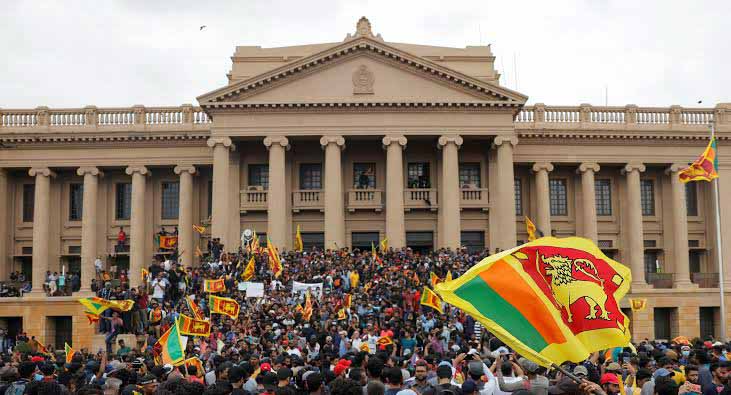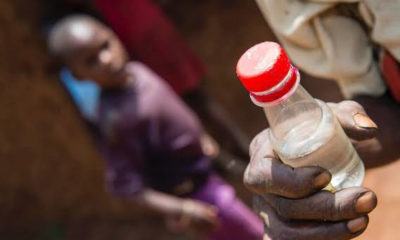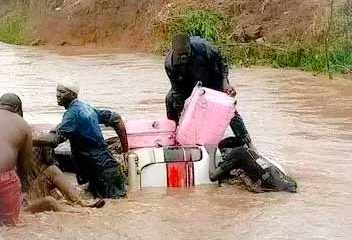Brian Mukalazi
We’re close to recession; Government where are you?
“Our economy has faced a complete collapse,” said Sri Lanka’s embattled Prime Minister Ranil Wickremesinghe recently while addressing the country’s Parliament. In the Prime Minister’s words, Sri Lanka is bankrupt and is facing its worst economic crisis in 70 years.
The economic crisis has left millions of Sri Lankan people struggling to buy essential products such as food, medicine and fuel. In June, the country halted the sale of petrol and diesel to ordinary people. The lack of medicines in health facilities has brought the health system to the verge of collapse.
Inflation is now running at a record 55 percent and is expected to rise even further in the coming weeks. The government is so short of funds that it was planning to start printing money to pay its employees’ salaries.

A mass protest by millions of people in Sri Lanka was caused by economic mismanagement that made the government unable to intervene to restore calm
Of course, Uganda’s economic situation is not as awful as Sri Lanka’s but if not checked, who knows, we may as well follow a similar path. New figures by the Bank of Uganda show that Uganda’s annual headline inflation and core inflation rose to 6.8 percent and 5.5 percent in June 2022 from 2.7 percent and 2.3 percent in January 2022, respectively.
Bank of Uganda also recently increased the Central Bank Rate from 7.5 percent to 8.5 percent, citing increased inflation. This movement may make commercial loans more expensive by way of increased interest rates.
The rise in Uganda’s inflation has been largely influenced by the soaring food and energy prices, intensified by a weaker Ugandan shilling. In an economy where only 1 percent of working Ugandans earn more than oNe million shillings per month, this crisis has severely affected peoples’ domestic consumption.
And to cope with the economic stagnation, majority of Ugandans are foregoing purchases of some basic commodities, such as food, sugar and soap. Many have parked their cars since they can no longer afford fuel, which has increased by over 80 percent from UGX3,500 in mid-March to about UGX6,300 in July.
The cost of living is increasingly threatening the livelihoods of many Ugandans whose incomes have remained static. According to a recent survey, prices are between 30 – 50 percent higher than they were twelve months ago.
For instance, the price of a kilogramme of maize flour rose by 48 percent from UGX1,843 in June 2021 to UGX2,898 last month. A kilogramme of cassava flour rose by 32 percent from UGX1,673 in June 2021 to UGX 2,202 last month. Tomato prices grew by 52 percent from UGX2,257 in June 2021 to UGX3,427 last month.
However, it is worth noting that the unfavourable economic events observed in Uganda and Sri Lanka are not unique to only these two countries. The problems are global in nature and are causing serious challenges to all world economies, irrespective of their sizes.
In part, the global crisis has been attributed to the on-going Russia-Ukraine war which has effectively locked up raw materials and food usually exported by both nations, and to some extent, China’s difficulties with Covid-19, which have caused repeated lockdowns and holdups at ports.
For many countries, recession is going to be hard to avoid but the lifeline, in my view, could lie in the measures and decisive action taken by the respective governments.
In Uganda’s case, the government has so far decided against taking any significant actions to avert the crisis, arguing that the country is a free-market economy and that subsidies or other forms of proposed measures would instead collapse the economy.
So, it’s literally business as usual for our leaders. Our Parliament can still afford to spend UGX2.4 billion on brand new cars for the speaker and her deputy; the same parliament can afford to pay UGX 40 million to each MP in allowances for allegedly passing a supplementary budget. We can still afford to advertise the Uganda Airlines CEO position but give it out before the search deadline – the search reportedly cost UGX900m.
Our leaders, across the political divide, appear to be living in a different country from the rest of us and this has made people trust them less. Many of the government initiatives lack the incentives for people to work hard because they are not economically efficient.
Some of the national institutions, economic and political, have blocked our country’s engines of prosperity and in some cases, they have even made them work in reverse. This has given us little chance of sustained economic growth and has thrown the affairs of our nation into hopeless chaos.
The way our society is being organised economically and socially (and perhaps politically) could surely lead to mass starvation and famine among the citizens in the days to come. At the moment, it doesn’t really matter whether Uganda is in the lower middle-income category or not, what really matters to majority of Ugandans is sustainable livelihoods and welfare.
Perhaps understandably, Covid-19 has had a huge effect on the institutions of government and it’s no surprise that, even before the current economic crisis, a good number of Ugandans in working age had been rendered unemployed, with many having been already thrown back into the jaws of poverty.
However, we need a radical break from the past. We should build more inclusive economic and political institutions, together with a more inclusive nature of markets that will allow our people to allocate their talents to the right lines of business. We should stop wasteful expenditure and also aim at combating corruption (sigh!). Like they say, extraordinary conditions call for extraordinary remedies!
Mr. Mukalazi is a Ugandan Executive and
Socio-Economic Thinker
bmukalazi@ecmafrica.org
Comments


























